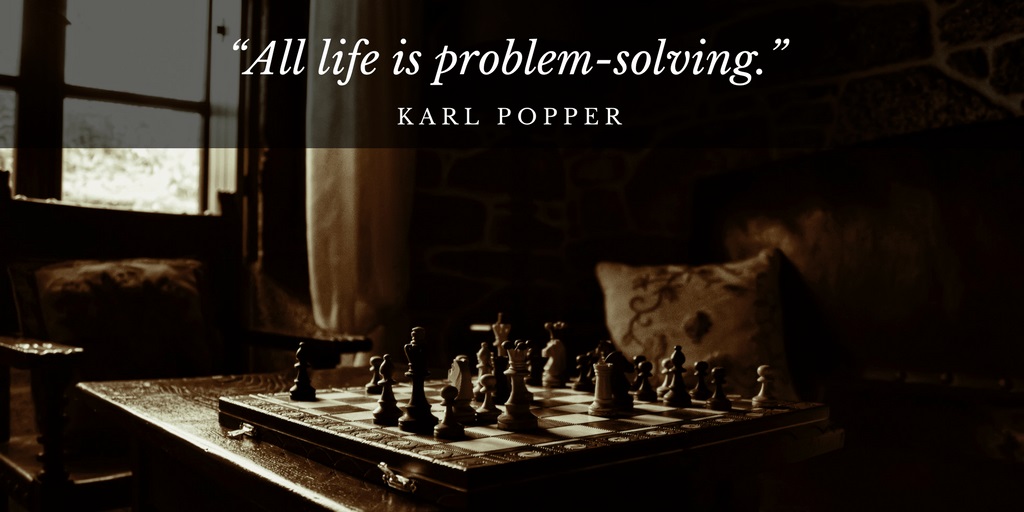In these trying times before Manipur, it is difficult not to be reminded of how physicist turned philosopher, Karl Popper, characterised the idea of problem solving. In “All Life is Problem Solving” (Routlege Classic series) a collection of his own essays on issues related to problem solving, an essay which has the same title as the book is particularly interesting in the context of this discussion. He says life, and therefore survival, in the ultimately analysis is about problem solving. This naturally entails, first correctly identifying and diagnosing the problem, and then thinking of a strategy to get past it. All life forms, from the time they came into being, have been following this strategy, of course with widely varying sophistications. This being the case, a simple single cell being like the amoeba and the most evolved brain, and Popper uses the example of Einstein, have employed this survival mantra through their lives. However, the differences in the way they have refined their approaches, as Popper explains, is fascinating and eye opening. Amoebas act purely by instinct. They solve their problems by trials and errors. Whenever it runs into a problem, it and many more of its kind will run continue to run into the problem and perish until by chance one among them discovers a new route to avoid the problem. This new route will then be followed until another problem comes their way, and then the whole exercise will be repeated. There is a good chance they all will perish if their trial and error strategy is unable to discover a new solution soon enough. This is also very much the problem solving strategy of much of the animal world. But things change when it comes to higher primates and other intelligent beings.
So what would humans (Einstein) do, Popper muses. Unlike the amoeba, intelligent life, in particular humans, do not make themselves part of their problem solving experiments. If an experiment fails, it is only the experiment which is discarded, but the experimenter does not perish. This can of course also cross ethical limits, and humans can and have used other life forms to conduct their experiments, and in extreme cases, privileged humans in positions of power have used others of their same kind lower down on the privilege hierarchy as experimental guinea pigs. But even without resorting to such extremes, humans generally solve problems differently. Not just would he avoid his person being part of the experiment, the most progressive would also generally not wait for the next problem to appear. He would instead try and anticipate the problem and therefore its solution too. This entails the capacity to be self-critical. As Popper illustrates it, Einstein would strive to come with a solution to a difficult problem, but after he has discovered it, he would not rest even if his theory has been put in to practice and confirmed as working. He would begin looking for faults in his own theory or even to discredit it, until he discovers other ways of getting past the problem, some even better than what are already available. This way, the best minds, and the best survivors, always have managed to keep ahead of problems. The other inference is, in any problem solving efforts, it is never helpful to look to dead symbols as props for the present problem solving efforts. Looking forward to new solutions is the only way.
If this is true for individuals, it works for societies too. A problem solving plan and its execution must never be treated as identical. A plan must precede its execution for disasters to be avoided in the event of setbacks or even an eventual failure of the plan. Again, a plan must remain open to scrutiny always, even to be discarded and changed if the need arises, if it is discovered the goal can be better achieved through alternate means. In fact, in the battlefields as well as on the sporting fields, the best commanders and coaches always keep many layers of alternate plans ready for quick switches depending on the changes in the battle scenario before them. For this, the ability to be self-critical and the acceptance that nobody and no plan is infallible is crucial. Not only this, the ability must be also to take critical reviews from others, and to learn from them. In the end, the qualities that matter would also be resilience and accommodation, rather than obduracy, blind to unfolding and changing realities.










